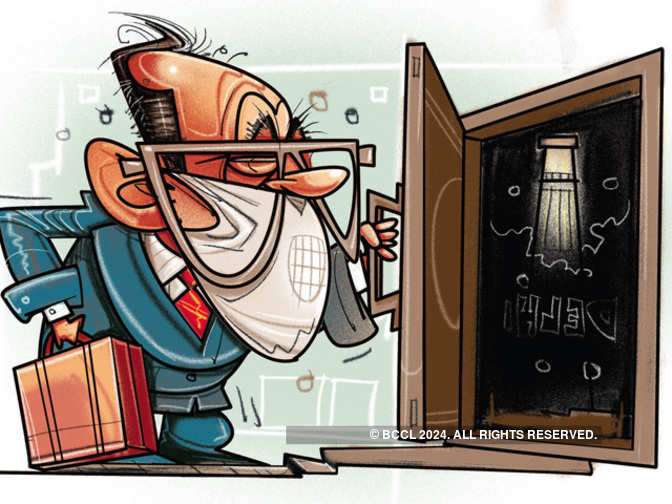
NEW DELHI: A fortnight ago, search firm BTI Consultants approached a top Bengaluru-based pharmaceutical industry executive with a job offer that included a better position, 40% increase in pay and other perks. He refused the offer. Taking up the job would have required him to relocate to Delhi, which he didn’t want to as he was alarmed by the severity of air pollution in the capital city.
Pollution in the National Capital Region including Delhi has for some time been a concern for executives moving to the city, but attractive offers have often won them over.
“This is the first instance where a candidate has rejected the job offer citing pollution-related concerns,” said BTI Consultants managing director James Agrawal. There have been several candidates who have shown reservations on moving to Delhi-NCR in the past few months, but there have been no outright rejections, he added.
Kris Lakshmikanth, founder of The Head Hunters India, too, faced a similar situation earlier this month. An executive at a leading online company based out of the US declined an offer from a Delhi ecommerce firm. The package at half-a-million dollars plus stock options was 60% more than what he was getting. “But he refused, citing hazardous impact of the bad air quality on his young children,” Lakshmikanth said.
The generallyhigh pollution levels in Delhi worsen around the onset of winter. This year, it has been particularly grave with a toxic smog blanketing the city and the region for close to two weeks. Although the situation has started improving since Tuesday, it still remains hazardous in most parts of the city.
Experts called the situation a public health emergency, as the level of the PM 2.5 fine pollution particles — linked to chronic bronchitis, lung cancer and heart disease — rose to as high as 1,000. The World Health Organization considers 25 as the maximum level that a person can safely be exposed to over a 24-hour period. American carrier United Airlines suspended flights to Delhi, citing poor air quality.
Spooked by pollution, several executives have also cancelled or postponed their visits to the city, said staffing sector executives. AUS-based client of Transearch India cancelled his trip to India following the recent suspension of flights by United Airlines. This executive was to hold interviews for leadership positions in Delhi.
“Even though the flights have been resumed by the airline, the client is waiting for the air to get better before traveling to Delhi,” Transearch managing partner Uday Chawla said.
Not only overseas clients, but executives from other cities within India are also avoiding flying to Delhi, Chawla said.
For another search firm, Korn Ferry, searches involving foreign candidates and visits by foreign-origin officials involved in hiring have come to a halt.
“Foreign visitors are certainly postponing visits,” said Navnit Singh, its India managing director.
For the second year in a row, New Delhi ranked the lowest among the cities surveyed for Mercer’s Quality of Living rankings. Places like Hyderabad and Pune ranked higher than the country’s more traditional business centres due to factors such as lower crime rate, lesser air pollution and improved options for international and reputable English-speaking schools, according to Mercer.
“Delhi continues to be challenged with increasing air pollution, contributed by growing traffic and industrialisation in the city. Delhi’s air is the worst among world megacities which the World Health Organization confirmed recently,” said a Mercer spokesperson.
For Hunt Partners, the smog has resulted in rescheduled meetings primarily because certain clients and candidates have not been keeping well due to the prevailing smog in the city. “There is definitely a big negative perception on the current state in the region. Most conversations end with a significant amount of time devoted to discussing the weather and the ill-effects of the pollution,” Partner Praful Nangia said.
Until a couple of years back, candidates would cite the poor security situation, especially for women, as a reason for not considering Delhi as an option. Pollution has now been added to the list, Nangia said.


0 comments: